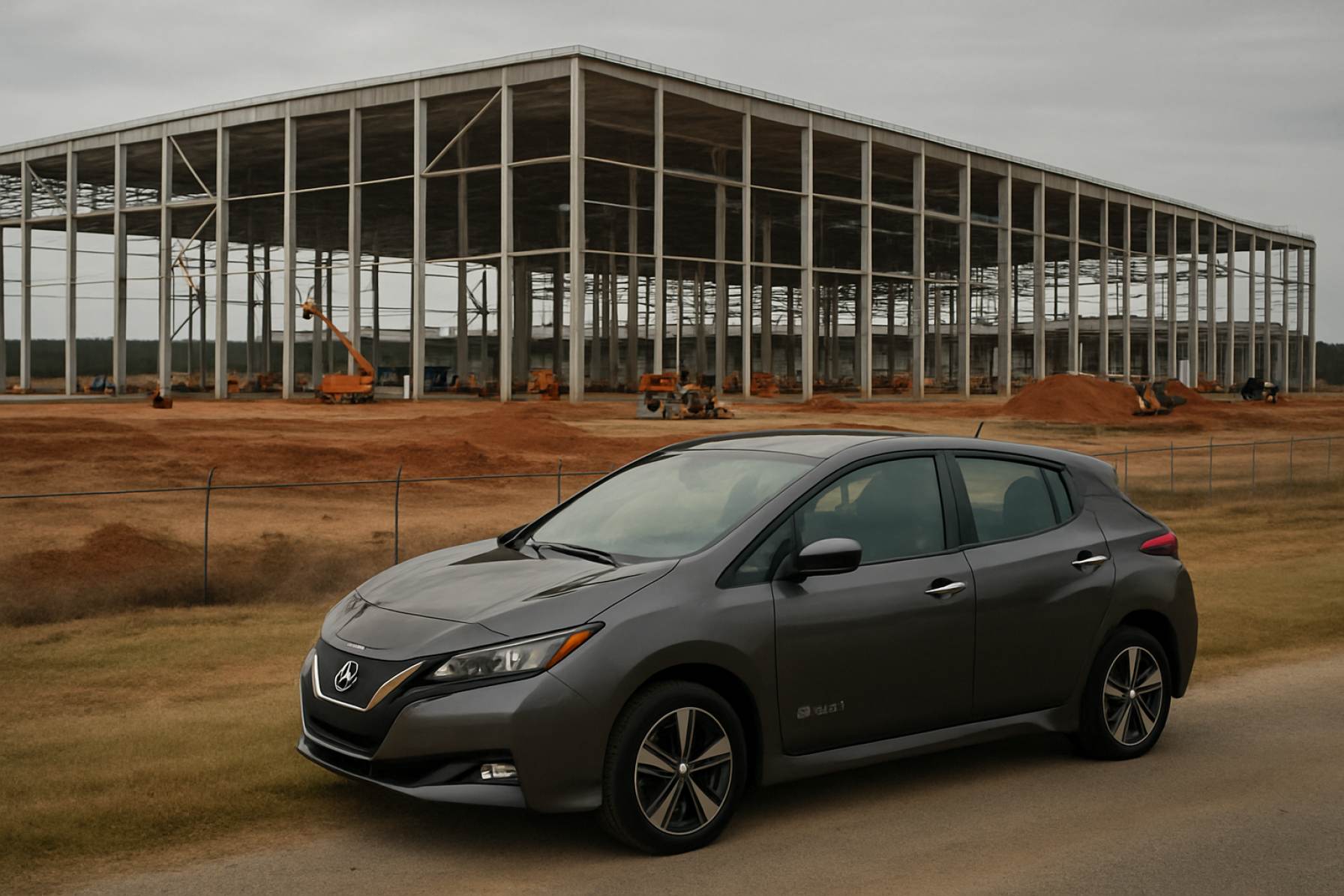Electric Shock: South Carolina’s $1.6 Billion BMW Battery Plant Suspended Amid Policy Turbulence—What It Means for EV Future
AESC halts construction on a massive EV battery factory in South Carolina, citing federal policy fears. What’s next for the state’s auto boom?
- $1.6 billion: AESC’s promised investment in the South Carolina battery plant
- 1,600 jobs: Expected to be created at the Florence facility
- $1 billion: Already invested by AESC before the project pause
- 2026: BMW’s target year to open its adjoining battery assembly plant
South Carolina’s electric vehicle (EV) gold rush just hit a major speed bump. Japanese battery powerhouse AESC, supplier for car giant BMW, abruptly halted construction on its $1.6 billion Florence, SC facility, blaming—without specifics—what it calls “policy and market uncertainty.”
This mega-factory was poised to turbocharge the state’s green manufacturing drive, create 1,600 high-quality jobs, and deepen South Carolina’s lucrative relationships with global automakers. But now, a swirl of political and economic concerns—ranging from electric vehicle tax credit reforms to looming trade tariffs—has frozen the ambitious project in its tracks.
Q&A: Why Did AESC Pull the Plug—At Least for Now?
AESC’s decision comes as policymakers in Washington debate the future of key federal incentives that make EVs more affordable for buyers and profitable for manufacturers. The company didn’t detail its concerns, but South Carolina Governor Henry McMaster pointed to the risk of losing federal tax breaks for EV purchases, shrinking incentives for green businesses, and the threat of new tariffs by a possible Trump administration.
Critically, AESC’s step-back isn’t permanent. The company vows to eventually restart construction and maintain its promise to invest $1.6 billion and hire 1,600 workers in Florence. But as of today, the timeline has vanished—and local leaders are left guessing.
How Will This Affect South Carolina’s EV and Auto Boom?
Electric vehicles and foreign investment have powered South Carolina’s economy for decades. The Palmetto State landed giants like Michelin and Samsung, and more recently doubled down on EVs. BMW’s largest North American plant stands in Greer, with a battery assembly site scheduled to open in 2026 regardless of AESC’s pause.
Yet, the uncertainty clouds more than one project. Volkswagen-owned Scout Motors is betting over $4 billion and 10,000 jobs on an electric SUV plant targeting a 2027 launch. These big bets ride on stable, predictable policies that help attract global innovation.
State officials remain optimistic—at least publicly. South Carolina is still offering $135 million in grants and $121 million in bonds to AESC, despite the pause. Meanwhile, a prior plan for a second Florence factory was quietly scrapped when AESC said one site would suffice for BMW’s demand.
What’s the Outlook for Federal EV Incentives and Tariffs?
Right now, a political showdown over American industrial policy looms large. The possible rollback of consumer tax credits and incentives for firms like AESC could dramatically reshape investment calculations. International companies fear sudden tariff hikes, especially under a Trump presidency, might make operating in the U.S. riskier than before.
Governor McMaster urges calm, saying state and business leaders are working in DC to ensure South Carolina remains a top destination for advanced manufacturing. He affirms that South Carolina’s economic boom will weather these disruptions, touting dialogues with the federal administration aimed at fostering growth and “robust prosperity.”
How Can Industry Players and Workers Prepare for Shifting EV Sands?
Stay nimble, say experts. Federal policies can swing quickly, reshaping industries overnight. Manufacturers like AESC and BMW must plan for multiple scenarios—delays, incentive withdrawals, even possible re-routing of supply chains. For job-seekers, it means watching state-level announcements closely and staying skilled for green tech fields that are still set to expand, albeit more cautiously.
Don’t Miss Out: South Carolina’s EV revolution is at a crossroads. If you’re in the auto, tech, or policy spheres, now’s the time to stay informed and ready for rapid change.
Checklist: Your Action Plan Amid South Carolina’s Battery Plant Pause
- Track developments on federal EV incentives at the official Department of Energy site
- Monitor South Carolina’s Department of Commerce for updates on grants and hiring
- Stay tuned to international trade news at Reuters and Associated Press
- Reskill in EV and battery tech through local training programs
- Engage with local economic and workforce organizations to hear the latest
Stay ahead of the curve—South Carolina’s electric future is uncertain, but full of opportunity for the prepared.
